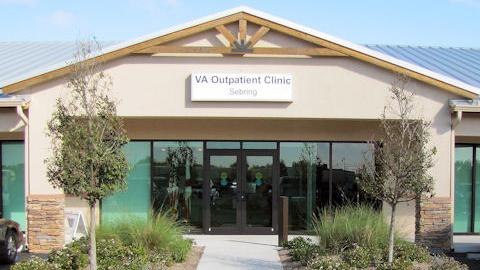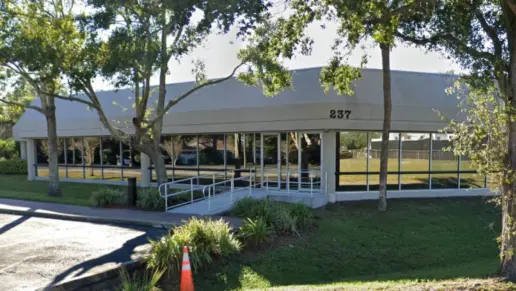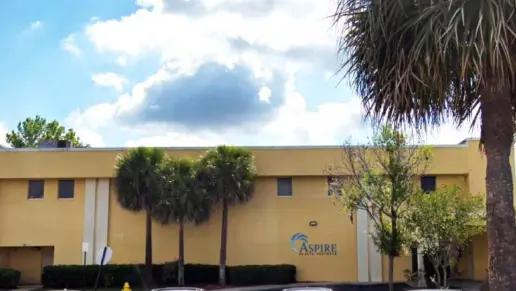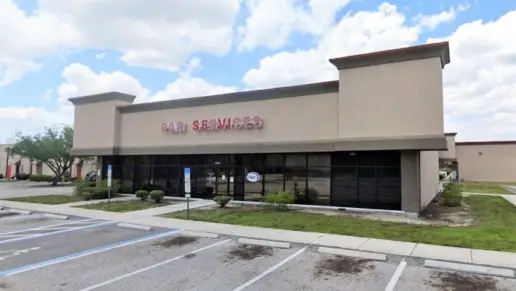About Bay Pines VA Healthcare System – Sebring Community Based OP Clinic
Sebring VA Clinic is part of the Bay Pines VA Healthcare System. This outpatient clinic serves veterans in Sebring, Florida, and its nearby metropolitan neighborhoods. This facility can be a life saver if you’re struggling with behavioral health issues. They offer mental health support, substance use treatment, and specialized PTSD care. Their substance use treatment equips you to handle unhealthy alcoholism or life threatening drug use.
They provide outpatient programs, with referrals to inpatient care for acute symptoms. A great way to build lasting recovery is to go through both parts of the care continuum. This means stepping down from inpatient rehabilitation to outpatient care. However, a referral is required.
Detox is geared towards weaning off addiction related toxins from your body. This prepares you to receive the main therapy. You’ll receive 24/7 medical supervision by clinical experts during the procedure. They may administer meds or provide counseling to ensure your withdrawal is as painless and comfy as possible. You’ll ideally continue your treatment via inpatient rehabilitation after detoxing.
The inpatient rehab is a structured and high intensity program with 24/7 support by their clinical professionals. You’ll participate in individual counseling and group therapy to address the psychological issues fueling your addictive behavior. This helps you build healthier coping skills that encourage sober living and prevent relapse. You may also participate in educational workshops to better learn about addiction from the disease perspective and how it affects your life.
Medication assisted treatment (MAT) may be provided if relevant to your personalized treatment. This is especially so for folks dealing with opioid dependence or alcoholism. The technique uses meds approved by the FDA alongside behavioral therapy to support recovery. Veterans with co-occurring disorders may receive psychiatric and medication management alongside addiction therapy.
Their outpatient care is a flexible program that helps you reintegrate into regular routines and responsibilities. This program is suitable if you’re stepping down from the inpatient treatment or just need support for your moderate to mild addiction. It involves group and individual counseling alongside educational classes focusing on building recovery skills.
The greatest attraction of this outpatient therapy is that it enables you to receive therapy while maintaining your work or family commitments. Their secured telehealth services can make it even more convenient and comforting. This includes videoconferencing and home telehealth support.
Their full spectrum of substance use involves various social support services. This includes housing assistance for homeless veterans, unemployment assistance and health maintenance services. More social or community support services are available via their specialized social work. These may include financial support, legal and transportation aids and care coordination.
I like that they accept private and public insurance plans like Medicare, Medicaid and TRICARE. You may receive transportation assistance to and from your appointment if eligible. This further saves costs. I also like that you can qualify for care even if you aren’t enrolled in VA health care. They even offer same-day help and support walk-ins for emergency health issues.
Latest Reviews
Rehab Score
Gallery

Location
Other Forms of Payment
Self-pay involves paying for treatment out of your own pocket. You can use savings or credit, get a personal loan, or receive help from family and friends to fund your treatment. If you don't have insurance or your insurance plan doesn't cover a specific program, self-pay can help ensure you still get the care you need.
Financial aid can take many forms. Centers may have grants or scholarships available to clients who meet eligibility requirements. Programs that receive SAMHSA grants may have financial aid available for those who need treatment as well. Grants and scholarships can help you pai for treatment without having to repay.
Military members, veterans, and eligible dependents have access to specific insurance programs that help them get the care they need. TRICARE and VA insurance can help you access low cost or no cost addiction and mental health treatment. Programs that accept military insurance often have targeted treatment focused on the unique challenges military members, veterans, and their families face.
Private insurance refers to any kind of healthcare coverage that isn't from the state or federal government. This includes individual and family plans offered by an employer or purchased from the Insurance Marketplace. Every plan will have different requirements and out of pocket costs so be sure to get the full details before you start treatment.
Addiction Treatments
Levels of Care
Treatments
Mental health rehabs focus on helping individuals recover from mental illnesses like bipolar disorder, clinical depression, anxiety disorders, schizophrenia, and more. Mental health professionals at these facilities are trained to understand and treat mental health issues, both in individual and group settings.
Programs



Clinical Services
Cognitive Behavioral Therapy (CBT) is a therapy modality that focuses on the relationship between one's thoughts, feelings, and behaviors. It is used to establish and allow for healthy responses to thoughts and feelings (instead of unhealthy responses, like using drugs or alcohol). CBT has been proven effective for recovering addicts of all kinds, and is used to strengthen a patient's own self-awareness and ability to self-regulate. CBT allows individuals to monitor their own emotional state, become more adept at communicating with others, and manage stress without needing to engage in substance abuse.
Whether a marriage or other committed relationship, an intimate partnership is one of the most important aspects of a person's life. Drug and alcohol addiction affects both members of a couple in deep and meaningful ways, as does rehab and recovery. Couples therapy and other couples-focused treatment programs are significant parts of exploring triggers of addiction, as well as learning how to build healthy patterns to support ongoing sobriety.
Research clearly demonstrates that recovery is far more successful and sustainable when loved ones like family members participate in rehab and substance abuse treatment. Genetic factors may be at play when it comes to drug and alcohol addiction, as well as mental health issues. Family dynamics often play a critical role in addiction triggers, and if properly educated, family members can be a strong source of support when it comes to rehabilitation.
Group therapy is any therapeutic work that happens in a group (not one-on-one). There are a number of different group therapy modalities, including support groups, experiential therapy, psycho-education, and more. Group therapy involves treatment as well as processing interaction between group members.
In individual therapy, a patient meets one-on-one with a trained psychologist or counselor. Therapy is a pivotal part of effective substance abuse treatment, as it often covers root causes of addiction, including challenges faced by the patient in their social, family, and work/school life.
Nicotine Replacement Therapy (NRT) is a way of getting nicotine into the bloodstream without smoking. It uses products that supply low doses of nicotine to help people stop smoking. The goal of therapy is to cut down on cravings for nicotine and ease the symptoms of nicotine withdrawal.
Trauma therapy addresses traumatic incidents from a client's past that are likely affecting their present-day experience. Trauma is often one of the primary triggers and potential causes of addiction, and can stem from child sexual abuse, domestic violence, having a parent with a mental illness, losing one or both parents at a young age, teenage or adult sexual assault, or any number of other factors. The purpose of trauma therapy is to allow a patient to process trauma and move through and past it, with the help of trained and compassionate mental health professionals.
Amenities
-
Private Setting
-
Lakeside
Accreditations

The Joint Commission, formerly known as JCAHO, is a nonprofit organization that accredits rehab organizations and programs. Founded in 1951, the Joint Commision's mission is to improve the quality of patient care and demonstrating the quality of patient care.
Joint Commission Accreditation: Yes
Accreditation Number: 4536

The Substance Abuse and Mental Health Services Administration (SAMHSA) is a branch of the U.S. Department of Health and Human Services. Established in 1992 by congress, SAMHSA's mission is to reduce the impact of substance abuse and mental illness on American's communities.
SAMHSA Listed: Yes
Contact Information
5901 US Highway 27 South
Sebring, FL 33870-2117


